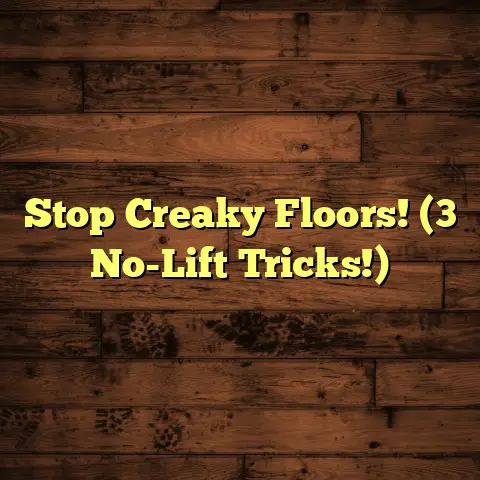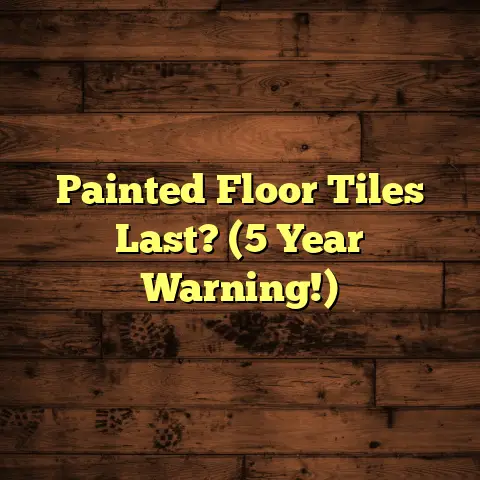Cost to Refinish Hardwood Floor in Ireland
Refinishing hardwood floors is a popular choice for homeowners looking to rejuvenate their living spaces without the need for complete replacement. This comprehensive guide aims to provide an in-depth understanding of the costs associated with refinishing hardwood floors in Ireland, covering all the essential factors that can influence the overall expense. From understanding the types of hardwood to comparing costs with alternative flooring options, this article will serve as a valuable resource for anyone considering this project.
Overview of Hardwood Flooring
Hardwood flooring has been a staple in homes for centuries, prized for its natural beauty, durability, and versatility. Available in various species, colors, and finishes, hardwood can complement any interior design style, from traditional to contemporary.
Types of Hardwood
There are two primary categories of hardwood flooring:
- Solid Hardwood: Made from a single piece of wood, solid hardwood floors can be sanded and refinished multiple times throughout their lifespan, making them a long-term investment.
- Engineered Hardwood: Composed of multiple layers, engineered hardwood offers greater resistance to moisture and temperature fluctuations. While it can be refinished, the options are more limited compared to solid hardwood.
Benefits of Hardwood Flooring
- Aesthetic Appeal: The unique grain patterns and rich colors enhance the beauty of any room.
- Durability: Properly maintained hardwood floors can last for decades.
- Increased Property Value: Homes with hardwood flooring often see a return on investment when sold.
- Eco-Friendly Option: Sustainable sourcing practices make hardwood a responsible choice.
Major Cost Factors
When estimating the cost of refinishing hardwood floors, several key factors must be considered:
Area Size
The size of the area being refinished is one of the most significant determinants of cost. Larger spaces will require more materials and labor, thereby increasing the overall expense. It’s essential to measure the square footage accurately to obtain reliable estimates from contractors.
Example Calculation
If you plan to refinish a room measuring 30 square meters and the average cost per square meter is €25, the total cost would be: Total Cost=Area Size×Cost per Square Meter=30 sqm×€25/sqm=€750\text{Total Cost} = \text{Area Size} \times \text{Cost per Square Meter} = 30 \, \text{sqm} \times €25/\text{sqm} = €750
Hardwood Type
Different types of hardwood come with varying price points based on their availability, durability, and popularity. Common species include:
- Oak: Highly sought after for its strength and affordability.
- Maple: Known for its durability and smooth grain; typically more expensive than oak.
- Cherry: Valued for its rich color and fine grain; tends to be pricier.
- Walnut: An exotic choice that offers a deep, luxurious appearance at a higher cost.
Selecting a specific hardwood type can significantly impact your overall budget.
Labor Costs
Labor costs can vary widely depending on the contractor’s experience, reputation, and location within Ireland. On average, you can expect to pay between €25 and €50 per hour for skilled labor.
Factors Affecting Labor Costs
- Experience Level: More experienced professionals may charge higher rates but can offer superior workmanship.
- Project Complexity: Intricate designs or detailed work will require more time and skill, increasing labor costs.
- Geographical Location: Urban areas may have higher labor costs compared to rural regions.
Additional Considerations
Several additional considerations can affect the overall cost of refinishing hardwood floors:
Floor Removal
If existing flooring needs removal before refinishing, this will incur additional expenses. The cost for removing old flooring can range from €5 to €15 per square meter.
Subfloor Replacement
In cases where the subfloor is damaged or unsuitable for refinishing, replacement may be necessary. This could add an additional €10 to €20 per square meter.
Material Grade
Higher-grade materials, such as premium finishes or high-quality stains, will come at a premium price. Investing in quality materials can lead to better results and longer-lasting beauty.
Room Size/Layout
Rooms with complex layouts or unique features may require additional labor time and expertise, impacting the overall cost.
Installation Type
The method used for refinishing—such as sanding, staining, and finishing—will also influence costs. More extensive processes naturally require more time and materials.
Detailed Cost Breakdown
Average Costs for Refinishing Hardwood Floors
The cost of refinishing hardwood floors can be broken down into several categories, including basic refinishing services and more comprehensive packages.
- Basic Refinishing: €15 – €25 per square meter (includes simple cleaning and sealing).
- Sanding and Staining: €20 – €35 per square meter (includes sanding down to bare wood and applying stain).
- Complete Refinishing (Sanding, Staining, Finishing): €30 – €50 per square meter (includes all steps for a full restoration).
Cost by Project Size
Understanding how costs can vary based on project size helps homeowners budget accordingly.
- Small Room (up to 20 sqm): Estimated cost ranges from €300 – €1,000.
- Medium Room (20 – 50 sqm): Estimated cost ranges from €600 – €1,500.
- Large Room (50 – 100 sqm): Estimated cost ranges from €1,200 – €3,000.
- Extra-Large Room (over 100 sqm): Estimated costs can exceed €3,000 depending on scope.
Hardwood Types and Grades
Costs associated with different hardwood types and grades are essential to understand when budgeting for refinishing:
| Hardwood Type | Cost per Square Meter | Durability |
|---|---|---|
| Oak | €20 – €40 | High |
| Maple | €30 – €50 | High |
| Cherry | €40 – €60 | Moderate |
| Walnut | €50 – €80 | Moderate |
| Exotic Woods | €60+ | High |
The choice of hardwood not only affects aesthetics but also influences the durability and long-term value of your investment.
Comparison with Alternative Flooring Options
When considering refinishing hardwood floors, it’s helpful to compare costs with alternative flooring options such as laminate, vinyl, and carpet. Here’s a breakdown of these alternatives:
Comparison Table
| Flooring Type | Cost per Square Meter (Approx.) | Durability | Maintenance | Lifespan |
|---|---|---|---|---|
| Hardwood | €15 – €60 | High | Moderate | 50+ Years |
| Laminate | €10 – €30 | Moderate | Low | 15-25 Years |
| Vinyl | €15 – €40 | High | Low | 10-20 Years |
| Carpet | €10 – €25 | Low | High | 5-15 Years |
Key Takeaways
- Hardwood vs Laminate: While laminate is cheaper upfront, it lacks the longevity and aesthetic appeal of real wood.
- Vinyl’s Practicality: Vinyl offers high durability and low maintenance but may not match the elegance of hardwood.
- Carpet Comfort vs Durability: Carpet provides warmth but is less durable and requires more frequent replacement compared to hardwood.
Signs Your Hardwood Floors Need Replacement vs Refinishing
It’s essential to identify whether your hardwood floors merely need refinishing or if they require complete replacement. Below are some signs that indicate the necessary course of action.
Signs for Refinishing
- Surface Scratches and Scuffs: Minor scratches can often be sanded out during the refinishing process.
- Fading Color: If the color has become dull or faded due to sunlight exposure, refinishing can restore vibrancy.
- Minor Water Damage: Small water stains or discoloration can typically be addressed with refinishing.
- Wear Patterns in High-Traffic Areas: High-traffic areas may show wear but can often be refreshed through sanding.
Signs for Replacement
- Deep Gouges or Cracks: Significant damage that goes beyond surface issues often warrants replacement.
- Extensive Water Damage: If water has penetrated deeply into the wood, it may compromise integrity.
- Structural Issues with Floorboards: Warping or buckling indicates more serious problems that require replacement.
- Pest Infestations: Infestations from pests like termites may necessitate complete replacement of affected boards.
Pros and Cons of Hardwood Flooring
Understanding the advantages and disadvantages of hardwood flooring can guide your decision-making process regarding refinishing or investing in new flooring altogether.
Pros
- Aesthetic Appeal: The unique look of hardwood enhances home decor and can suit various styles.
- Durability: With proper maintenance, hardwood floors last for decades or even centuries.
- Increased Property Value: Homes with hardwood often sell at higher prices due to their desirability.
- Eco-Friendly Option: Responsibly sourced hardwood is a renewable resource that contributes positively to the environment.
Cons
- Higher Initial Cost: The upfront investment in hardwood is generally higher than alternative flooring options.
- Requires Regular Maintenance: Hardwood floors need periodic refinishing and maintenance to retain their beauty.
- Susceptible to Moisture Damage: Excessive moisture can warp or damage hardwood floors; care must be taken in humid environments.
Cost Differences: Professional Installation vs DIY
Choosing between professional installation and DIY refinishing involves weighing costs against potential risks and benefits.
Professional Installation Costs
Hiring professionals ensures high-quality results but comes at a premium price:
- Labor Costs: Average rates range from €25 to €50 per hour based on expertise.
- Total Cost for Medium-Sized Room (including labor): Estimated between €600 – €1,500.
DIY Costs
While DIY projects may save on labor costs, they require planning and effort:
- Tools Needed:
- Sander rental: Estimated at €50 – €80 per day.
- Sandpaper, stains, finishes: Approximately €100 – €300 depending on quality.
- Total DIY Costs for Medium-Sized Room: Estimated between €250 – €600 (excluding labor).
Skills Required for DIY
Successfully refinishing hardwood floors requires specific skills:
- Basic Carpentry Skills: Understanding how to handle tools safely is crucial.
- Knowledge of Finishes and Stains: Familiarity with different products helps achieve desired results.
- Ability to Operate Sanding Equipment Safely: Using sanding equipment without causing damage takes practice.
Questions to Ask Hardwood Flooring Contractors
When considering hiring a contractor for your refinishing project, asking relevant questions ensures you make an informed choice:
- What is your estimated timeline for the project?
- Can you provide references or examples of previous work?
- What types of finishes do you recommend?
- Are there any warranties on your work?
- How do you handle unexpected issues during the project?
- Do you have insurance?
- What preparation is required on my part before the job begins?
- Will you provide a detailed written estimate?
Hardwood Floor Care and Maintenance Tips
To maximize the longevity of your hardwood floors after refinishing or installation:
Regular Cleaning Routine
- Dust or Vacuum Regularly: Prevent dirt buildup by cleaning frequently using a soft broom or vacuum designed for hardwood floors.
- Avoid Wet Mopping: Excess moisture can warp wood; instead, use a damp mop with appropriate cleaners specifically designed for hardwood.
Protective Measures
- Use Mats at Entryways: Place mats at doors to reduce wear from foot traffic and protect against dirt.
- Felt Pads Under Furniture Legs: Use felt pads under furniture legs to prevent scratches when moving items around.
Addressing Spills Promptly
- Clean Spills Immediately: Wipe up spills quickly with a dry cloth to prevent staining or water damage.
- Avoid Harsh Chemicals: Use pH-neutral cleaners made specifically for wood; avoid vinegar or ammonia-based solutions that could damage finish.
Periodic Maintenance
- Recoat Every Few Years: Depending on wear patterns and traffic levels, consider recoating every 3-5 years instead of full refinishing.
- Schedule Full Refinishes Every 5-10 Years: Assess wear and tear periodically to determine when full refinishing is needed.
Conclusion
Refinishing hardwood floors is an investment that enhances both beauty and value in your home while providing long-lasting durability with proper care. By understanding all associated costs—ranging from labor and materials to potential DIY savings—you can make informed decisions about your flooring project in Ireland.
This comprehensive guide has covered every aspect of refinishing hardwood floors, including considerations for choosing between professional services or DIY efforts, essential maintenance tips to extend the life of your floors, as well as comparisons between hardwood and alternative flooring options.
With this knowledge in hand, you are now equipped to navigate your flooring project confidently—whether it’s rejuvenating existing floors or contemplating new installations—ensuring that your living space remains beautiful and inviting for years to come.





